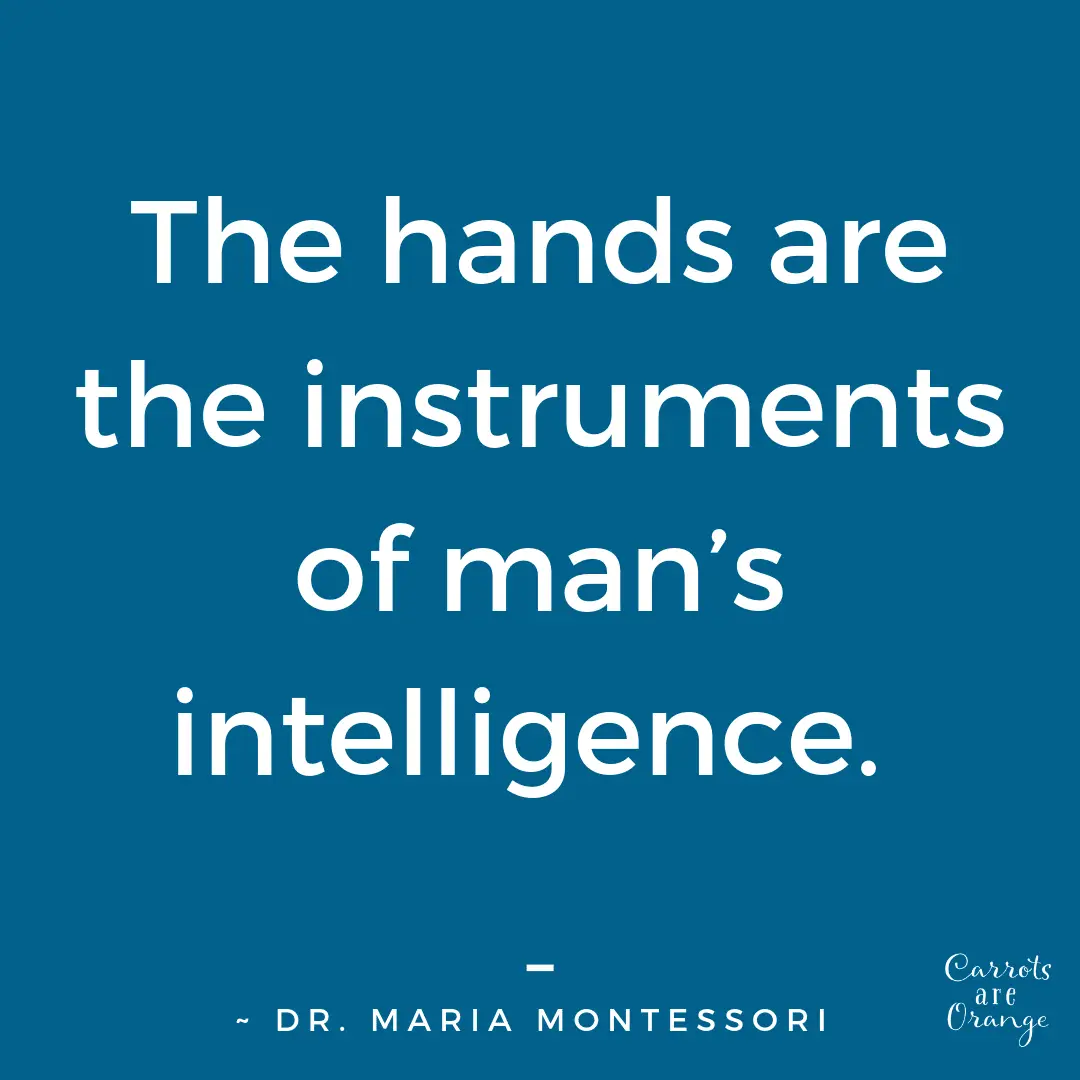Welcome to the world of Montessori education and parenting, where understanding and navigating the sensitive periods of a child’s development are crucial. These sensitive periods are unique windows of opportunity during which children are particularly receptive to acquiring specific skills and knowledge.
As a Montessori educator or parent, it is essential to recognize and embrace these periods to maximize a child’s growth and potential. In this comprehensive guide, we will explore the different sensitive periods and provide practical strategies to support children’s development during each phase.

Whether you are an experienced Montessori educator or a new parent eager to provide the best learning environment for your child, this guide will equip you with valuable insights and tools to create a nurturing and stimulating environment that fosters growth and independence. So, let’s embark on this journey together and unlock the potential within every child!
Understanding Montessori Sensitive Periods in Child Development
Child development is a complex and fascinating process, and understanding the concept of sensitive periods can help us better support children’s growth. Sensitive periods are specific periods in a child’s life when they are biologically predisposed to acquiring certain skills or knowledge.
During these periods, children’s minds are highly receptive to learning and absorb information effortlessly. The sensitive periods can vary in duration and intensity, but they generally occur during the first six years of life.

Sensitive periods are not fixed, and they differ from child to child. However, Montessori education recognizes certain common sensitive periods that most children experience. These include the sensitive period for language acquisition, movement, order, refinement of the senses, writing, reading, and social development.
By understanding the Montessori sensitive period, educators and parents can provide appropriate materials, activities, and experiences to support children’s development in a holistic manner.
Sensitive periods are characterized by intense interest and focus on specific activities or concepts. For example, during the sensitive period for language acquisition, children show a strong desire to communicate and imitate the sounds and words they hear.
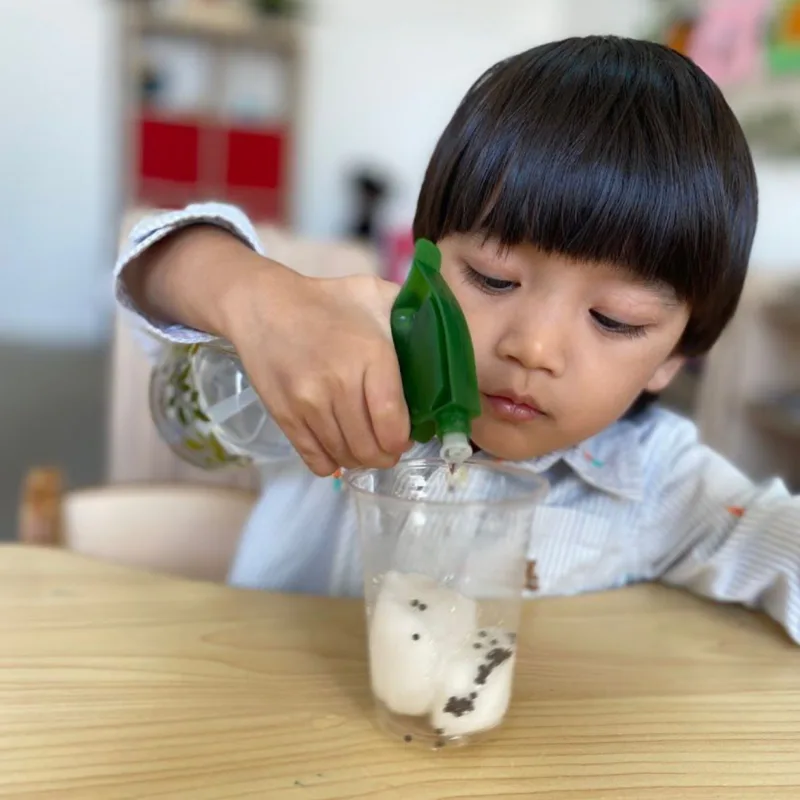
They become more attentive to language patterns and enjoy engaging in conversations with others. By recognizing and nurturing these sensitive periods, we can optimize children’s learning potential and create an environment that fosters their natural curiosity and exploration.
These distinctions help adults structure their kids’ learning activities. Furthermore, knowledge of this concept allows adults to understand a child’s development and how to plan the learning environment accordingly.
The Significance of Sensitive Periods in Montessori Education
Montessori education places great emphasis on the concept of sensitive periods. Dr. Maria Montessori observed that children go through specific phases of development during which they are particularly receptive to learning certain skills. She believed that providing the right environment and materials during these sensitive periods would enhance a child’s natural development and promote self-directed learning.

In Montessori education, the sensitive periods are viewed as critical opportunities for children to develop their full potential. By understanding and embracing these periods, Montessori educators can create an environment that supports and nurtures children’s individual needs and interests.
The Montessori approach recognizes that children learn best when they are actively engaged in purposeful activities that align with their sensitive periods. This child-centered approach allows children to learn at their own pace and follow their unique developmental path.
Sensitive periods in Montessori education are not limited to academic skills alone. They also encompass the development of social and emotional skills, independence, and self-discipline. By providing a prepared environment that caters to children’s sensitive periods, Montessori educators facilitate the development of well-rounded individuals who are not only academically proficient but also compassionate, self-confident, and capable of making independent choices.
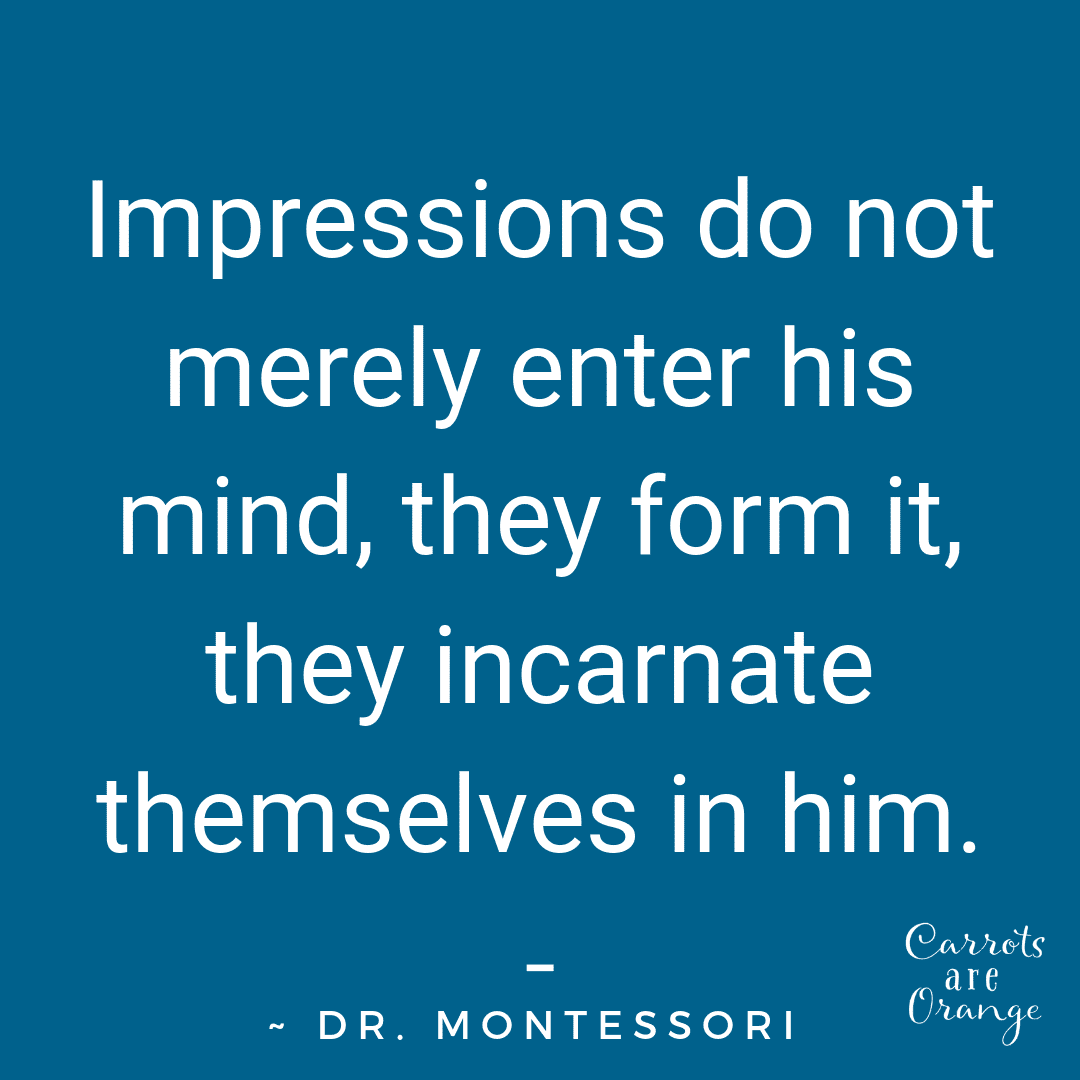
The Conscious and Unconscious Mind
Montessori broke the Absorbent Mind down into two phases: the unconscious (from 0-3 years old) and the conscious (from 3-6 years old). During the earlier period, the child unknowingly gathers impressions from his environment and begins to develop the “self-concept” and life skills, such as independence.
Once he enters the latter development period, the child consciously takes in his environment. He does not experience new impressions but instead seeks ways to give order to or create a system for those impressions gathered unconsciously during the prior development period.
Movement and liberty are significant inner drivers at this time. This is the “let me do it by myself” stage, and we adults should allow that to happen. His absorbent mind fades as he reaches six years of age.

Identifying and Observing Sensitive Periods in Children
Recognizing and understanding the sensitive periods in children is fundamental for Montessori educators and parents. The first step in identifying sensitive periods is careful observation of the child’s behavior and interests.
Montessori educators are trained to observe children closely, noting their preferences, strengths, and areas of interest. By observing children in their natural environment, educators can identify the sensitive periods they may be experiencing.
During sensitive periods, children often display a high level of concentration and focus on specific activities. They may repeatedly engage in certain actions or show a strong interest in particular subjects.
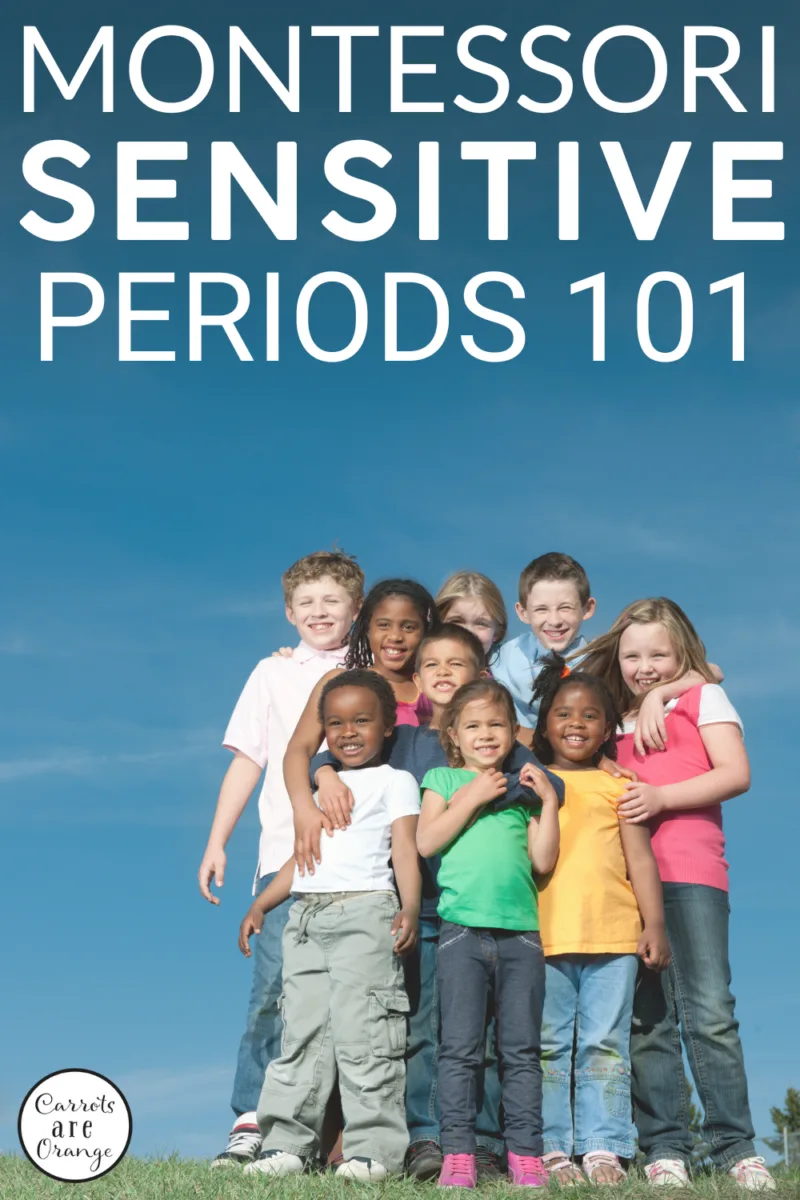
For example, a child in the sensitive period for language may spend hours babbling, imitating sounds, and attempting to communicate. Another child in the sensitive period for movement may be drawn to activities that involve gross motor skills, such as climbing, running, and jumping.
It is important to note that sensitive periods may overlap, and children may experience multiple sensitive periods simultaneously. By observing and documenting children’s behavior and interests, Montessori educators and parents can tailor the learning environment to meet their specific needs and provide appropriate activities and materials.
What are Sensitive Periods?
Sensitive Period Definition
The sensitive period definition builds on the idea that children aren’t consistently receptive to learning experiences. In other words, a child may not be interested in an activity because he has yet to enter that particular sensitive development period.
In addition to noticing distinctions between different children at one point, you’ll observe that individuals vary over time.
A sensitive period of development can manifest in different ways. For instance, a child might go through a stage where she’s particularly receptive to learning about communication or exploring her mobility.
Related Read: 12 Characteristics of a Successful Montessori Presentation
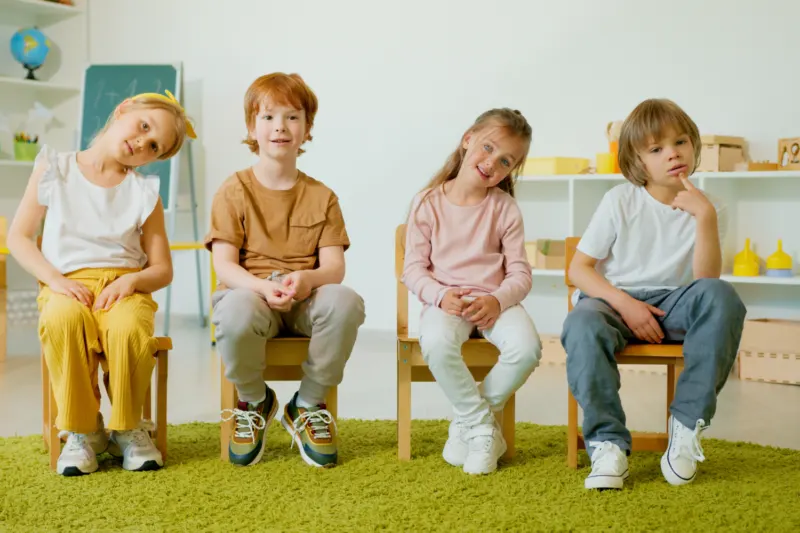
Sensitive Periods of Development
Sensitive periods describe the pattern the child follows in gaining knowledge of his environment while Absorbent Mind explains the quality and process by which he gathers this knowledge. {Montessori: A Modern Approach}
Click here for more Montessori quotes
Sensitive periods are “blocks of time in a child’s life when he is absorbed with one characteristic of his environment to the exclusion of all others.”
E.M. Standing writes, “Montessori observed sensitive periods in the child’s need for order in the environment, the use of the hand and tongue, the development of walking, a fascination with minute details objects, and a time of intense social interest.”

Metaphors in Biology
Montessori’s background in biology lent effective analogies to these periods in a child’s life. For example, she describes one metaphor: a young butterfly lays eggs on a leaf, where tiny caterpillars hatch and, with a keen sensitivity to light, seek out the softest leaves to nourish themselves in dangerous spots on plants.
Once the caterpillars grow and are strong enough to eat more rigid leaves, this sensitivity to light disappears. Another analogy is a searchlight (coming from the mind) illuminating only certain parts of the environment.
Like creatures in science, the child will show an intense interest in a specific activity. Therefore, the child is driven to repeat the exercise again and again for no reason but to satisfy an inner urge to make contact with and then make sense of his world.
Related Read: What Parents Should Know About W Sitting
The dire aspect of this point lies in the belief that once a child leaves a sensitive period, the opportunity for a “natural consequence” is lost. More notably, later development will be impeded.
So, as soon as adults witness a child entering a certain sensitive period, the adult must do all possible within their power to cater to the child’s development.
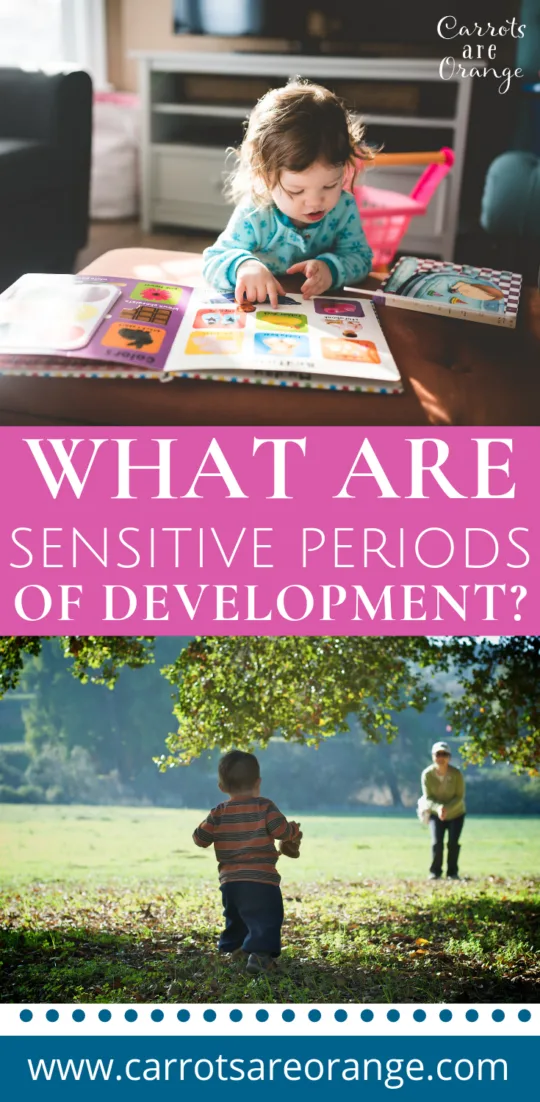
Six Sensitive Periods of Development
This evolution goes beyond a kid being more interested in certain activities on specific days — or less receptive to learning when they’re hungry. Dr. Maria Montessori grouped child development into six distinct periods, including:
- Reading & Writing – a period extending from 3 to the age of six but arguably starts at birth
- Order – starts during the first month or year of life and persists through the second year.
- Movement – starts at birth and continues with walking, typically at about 12 to 15 months.
- Social & Emotional – often occurs at around age two or three, beginning at birth.
- Small objects – happens when kids are about one and last for a few years
- Sensory learning – begins from birth
Movement
Children are born with limited control of movement. Gross and motor skills, however, develop quickly. Learning to use their bodies (about others, balance, fine motor skills) is very much integrated with children developing cognitive abilities.
It’s important to note that the timeframes associated with each sensitive development period vary. In reality, the learning opportunities, examples, and challenges that adults provide for children to have a significant effect.
Kids who receive more healthy stimuli and feedback may be more apt to learn. For instance, exposure to the outdoors may help with the small object-sensitive period of development — Rocks, grass, sticks, and other natural items make safe, interactive learning aids.
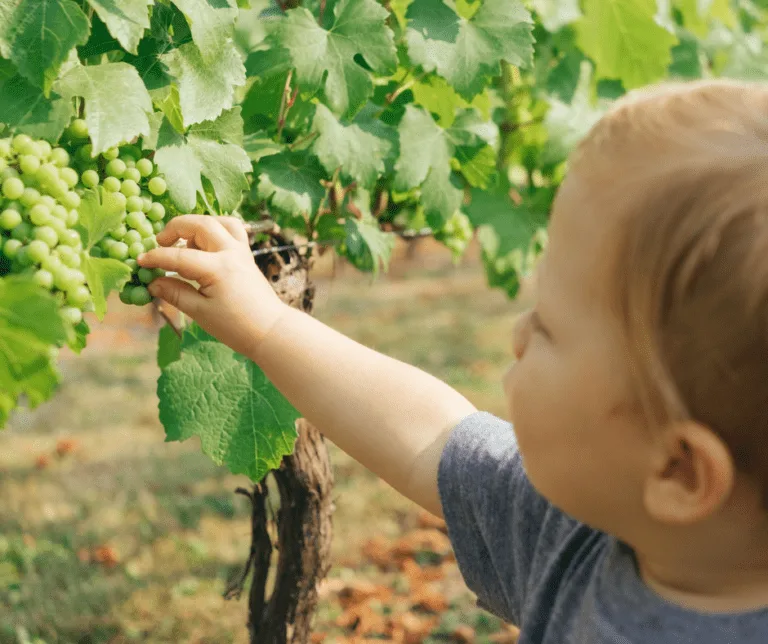
The Sensitive Period Concept Within a Broader Context
Another critical point to remember is that the sensitive period definition ties into the idea of growth stages — what Dr. Montessori called the Planes of Development.
There are four broad Planes of Development that Montessori schools use to group kids in classes:
# 1 – The Absorbent Mind
From birth to age six, children have an easy time taking in information. By using their senses, they develop culture, language, and knowledge. These critical skills became the building blocks of their personalities and thought patterns.
# 2 – Conscious Imagination
From age six to twelve, children develop their abstract thinking skills. They also learn to reason and evaluate the effects of their actions on social relationships. Notably, kids at this second plane of development like to be in control — They want to ask questions and investigate things they’re interested in learning.
#3 – New Identity
From age 12 to 18, adolescent kids start learning more about their newfound personal growth. This stage marks a definite transition toward adulthood.
#4 – Maturity
Mature young adults seek economic independence and control over their futures. During this period, they’ll begin forming more solid desires relating to personal goals and social lives.
Sensitive Periods & Child Development
Adulthood may seem like a long way off, but it’s not just a matter of time. What you do in the early stages affects everything to come. It’s important to realize that the planes of development aren’t some unchanging, universal framework. Adults need to recognize that children aren’t always predictable.
To put it differently, don’t always assume that your kid is merely acting out when they disobey. They may try to explore the world around them at a particularly receptive time. The sensitive periods can also be intense for younger children, who might feel overwhelmed by sensory input.
How can you cultivate your children’s learning habits during their unique development? Being patient and guiding them forward is the best way to foster their growth—your tone in the classroom or at home ripples through their lives. Always try to set an excellent example of how fun learning can be.
Strategies for Supporting Children During Sensitive Periods
Once sensitive periods are identified, it is essential to provide children with the right support and opportunities to fully explore and develop their skills. Here are some strategies to help Montessori educators and parents navigate sensitive periods effectively:
Observe and Document
Continuously observe and document a child’s behavior, interests, and progress. This will help identify the specific sensitive periods they are experiencing and guide the selection of appropriate activities and materials.
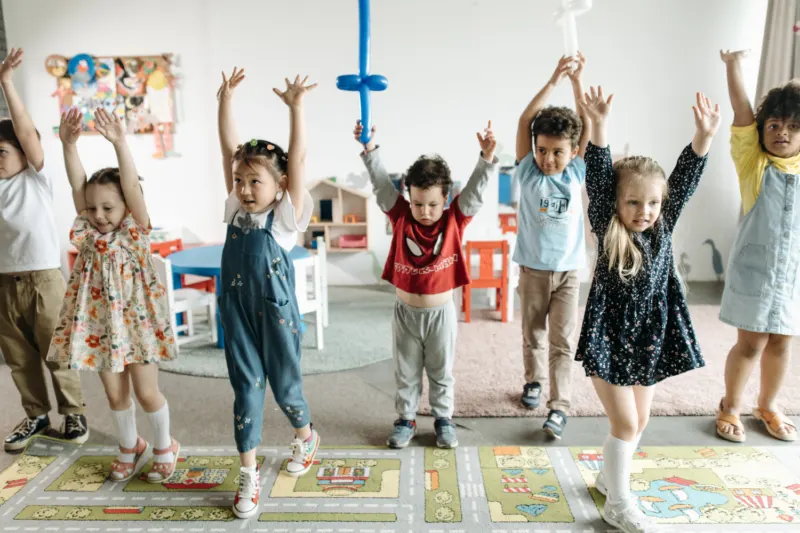
Prepare the Environment
Create a prepared environment that is conducive to the child’s sensitive periods. Ensure that the environment is organized and aesthetically pleasing, with materials and activities easily accessible to the child. This will allow children to engage in self-directed learning and exploration.
Provide Appropriate Materials
Offer a wide range of Montessori materials that align with the child’s sensitive periods. These materials should be designed to be self-correcting and promote independent exploration. By providing materials that match a child’s developmental needs, educators and parents can enhance the child’s learning experience and stimulate their natural curiosity.

Follow the Child’s Lead
Allow the child to take the lead in their learning journey. Observe their interests and provide opportunities for them to pursue activities that align with their sensitive periods. By following the child’s lead, educators and parents can foster a sense of autonomy and self-motivation.
Encourage Independence
Foster independence by encouraging children to engage in activities on their own. Provide guidance and support when needed, but allow children to make their own choices and decisions. This promotes self-confidence, problem-solving skills, and a sense of ownership over their learning.
Provide a Balance of Challenge and Support
Offer activities and materials that provide an appropriate level of challenge for the child. Avoid overwhelming them with tasks that are too difficult or boring. Strive to find a balance that keeps the child engaged and motivated.
These strategies, combined with a deep understanding of the child’s sensitive periods, will help Montessori educators and parents create an environment that supports optimal learning and development.

Montessori Materials and Activities for Sensitive Periods
Montessori materials and activities play a crucial role in supporting children’s sensitive periods. These materials are carefully designed to meet the developmental needs of children and provide opportunities for hands-on learning and exploration.
Here are some examples of Montessori materials and activities that can be used during sensitive periods:
Language Materials
Montessori language materials, such as sandpaper letters, the moveable alphabet, and language cards, are designed to support the sensitive period for language acquisition. These materials allow children to explore letter sounds, practice forming words, and develop their reading and writing skills.
Sensorial Materials
Montessori sensorial materials, such as the pink tower, knobbed cylinders, and color tablets, support the sensitive period for the refinement of the senses. These materials help children develop and refine their senses of sight, touch, sound, taste, and smell. They also promote the development of fine motor skills and hand-eye coordination.
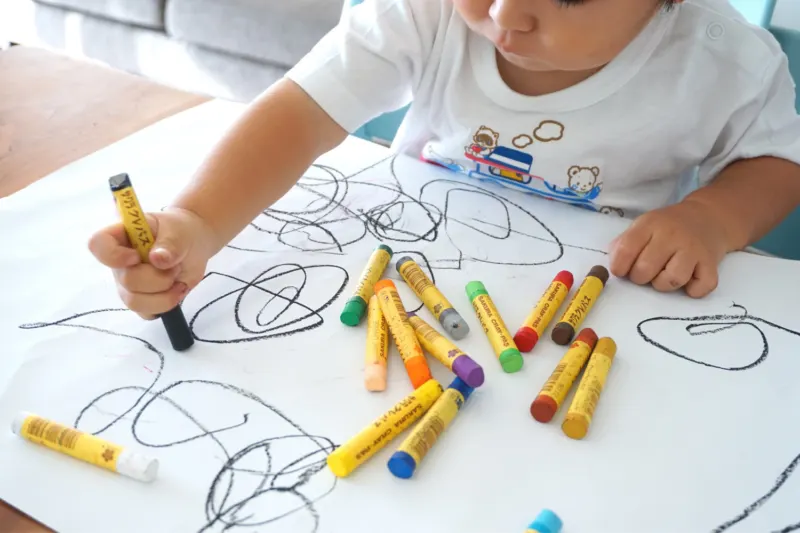
Mathematics Materials
Montessori mathematics materials, such as golden beads, number rods, and spindle boxes, aid in the sensitive period for mathematical understanding. These materials enable children to explore mathematical concepts, such as numeration, addition, subtraction, multiplication, and division, through hands-on activities and manipulatives.
Practical Life Activities
Practical life activities, such as pouring, spooning, buttoning, and sweeping, are an integral part of the Montessori curriculum. These activities support the sensitive period for order, refinement of movement, and development of fine motor skills. Practical life activities also promote independence, concentration, and self-discipline.
Cultural Materials
Montessori cultural materials, such as puzzle maps, animal figures, and cultural artifacts, expose children to various aspects of the world around them. These materials support the sensitive period for social development and help children develop an understanding and appreciation of different cultures, geography, history, and sciences.
By providing a rich variety of Montessori materials and activities, educators and parents can create a learning environment that caters to children’s sensitive periods and fosters their overall development.
Navigating Sensitive Periods at Home
Sensitive periods are not limited to the classroom; they extend into the home environment as well. As a parent, you play a crucial role in supporting your child’s sensitive periods and facilitating their learning journey. Here are some tips for navigating sensitive periods at home:
Create a Prepared Environment
Set up a prepared environment at home that is conducive to your child’s sensitive periods. Create dedicated spaces for different activities, such as a reading corner, art station, or nature exploration area. Ensure that materials and resources are easily accessible to your child, allowing them to engage in self-directed learning.

Establish a Routine
Establish a consistent daily routine that provides structure and predictability for your child. Sensitive periods thrive in an environment of order and routine. Ensure that your child has dedicated time for focused learning, play, rest, and family interactions.
Encourage Exploration and Independence
Encourage your child to explore their interests and engage in independent activities. Provide opportunities for hands-on learning, creative expression, and problem-solving. Support your child’s independence by allowing them to make choices, take risks, and learn from their mistakes.
Read and Communicate
Read books and engage in conversations with your child to support their language development. Encourage them to express their thoughts and ideas and actively listen to their perspectives. Reading and communication not only foster language skills but also promote bonding and a love for learning.
Engage in Nature-Based Activities
Take advantage of the sensitive period for movement and exploration by engaging in nature-based activities. Spend time outdoors, go for nature walks, explore parks, and encourage your child to observe and interact with the natural world. Nature provides endless opportunities for sensorial experiences and learning.
Remember, as a parent, you are your child’s first and most important teacher. By creating a nurturing and stimulating home environment that supports their sensitive periods, you are laying a strong foundation for their lifelong learning journey.

Addressing Challenges During Sensitive Periods
Navigating sensitive periods may come with its own set of challenges. Children may display frustration, resistance, or disinterest during certain phases. As Montessori educators and parents, it is important to address these challenges with patience, understanding, and empathy. Here are some strategies for handling challenges during sensitive periods:
Observe and Reflect
Observe the child closely and reflect on their behavior and needs. Try to understand the underlying reasons for any challenges or resistance they may be experiencing. Is the activity too challenging or not engaging enough? Are there external factors that may be affecting the child’s behavior? Reflecting on these questions can help identify appropriate solutions.
Modify the Environment
Assess the learning environment and make necessary modifications. Ensure that materials and activities are age-appropriate, engaging, and aligned with the child’s sensitive periods. Create a supportive and nurturing environment that encourages exploration, autonomy, and self-expression.
Provide Individualized Support
Each child is unique, and their needs may vary during sensitive periods. Provide individualized support by tailoring activities and materials to suit the child’s interests, abilities, and learning style. Offer guidance, encouragement, and assistance when needed, while also promoting independence and problem-solving skills.
Seek Professional Guidance
If challenges persist or become overwhelming, seek professional guidance from Montessori educators, child psychologists, or other experts in child development. They can provide valuable insights, strategies, and support to help navigate the challenges during sensitive periods.
Remember, challenges during sensitive periods are a normal part of a child’s development. By approaching them with empathy, flexibility, and a child-centered mindset, Montessori educators and parents can support children in overcoming challenges and unlocking their full potential.


